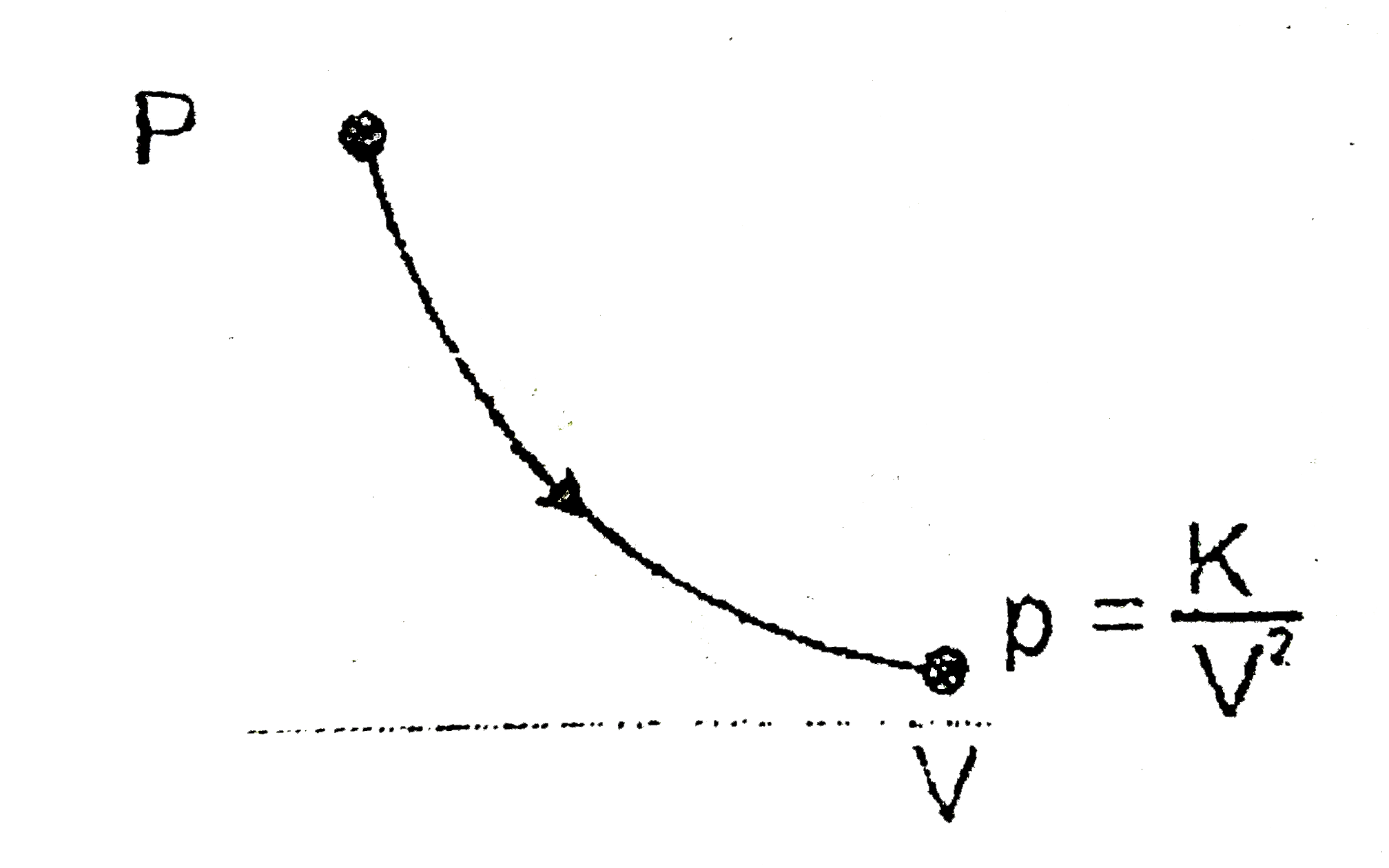An ideal gas is taken through a process in which the pressure and the volume are changed according to the equation p=kv. Show that the molar heat capacity of the gas for the process is given by (C=Cv+R2).Solution in Tamil
P=KV
implies nRTV=KV implies RT=KV2
implies RΔT=2KVΔV
implies RΔT2KV = DeltaV<br>dQ= dU + dW<br>⇒msdT= C_vdT + PdV<br>⇒msdT =C_vdT +(PRdT)/(2KV)<br>⇒ms = C_v + (RKV)/(2KV)∴C_p = C_v + R/2
Topper's Solved these Questions
Similar Questions
A wave of wavelength 0.60 cm is produced in air and it travels at a speed of 300 ms^-1. Will it be audible?
View SolutionThe gravitational force acting on a particle of 1 g due to a similar particle is equal to 6.67×10−17N. Calculate the separation between the particles.
View SolutionFigure shows a process on a gas in which pressure and volume both change. The molar heat capacity for this process is C.
View SolutionAn ideal gas (C_p / C_v = gamma) is taken through a process in which the pressure and volume vary as (p = aV^(b) . Find the value of b for which the specific heat capacity in the process is zero.
View SolutionOne mole of an ideal gas goes through a process in which the entropy of the gas changes with temperature T as S = aT + C_V 1n T , where a is a positive constant. C_V is the molar heat capacity of this gas at constant volume. Find the volume dependence of the gas temperature in this process if T = T_0 at V = V_0 .
View SolutionAn ideal gas is taken through a process in which pressure and volume vary as P = kV^(2) . Show that the molar heat capacity of the gas for the process is given by C = C_(v) +(R )/(3) .
View SolutionAn ideal diatomic gas undergoes a process in which the pressure is proportional to the volume. Calculate the molar specific heat capacity of the gas for the process.
View SolutionMolar heat capacity of gas whose molar heat capacity at constant volume is CV, for process P=2e2Vis :
View SolutionAn ideal gas is taken through a process in which the process equation is given as P=kV^(alpha) , where k and alpha are positive constants. Find the value of alpha for which in this process molar heat capacity becomes zero.
View SolutionFor certain process the molar heat capacity of an ideal gas is found to be (C_v+R/2) , where C_v is the molar heat capacity of the same gas at constant volume. For the given process, it can be concluded that
View SolutionThe molar heat capacity for the process shown in fig. is

View SolutionAn ideal gas under goes a quasi static, reversible process in which its molar heat capacity C remains constant. If during this process the relation of pressure P and volume V is given by PVn=constant, then n is given by (Here CPandCV are molar specific heat at constant pressure and constant volume, respectively):
View SolutionAn ideal diatomic gas is taken through a process in which the pressure and the volume vary as P = aV^b . If the specific heat capacity in the process is zero, then (-5b) is equal to ______
View SolutionAn ideal gas (Cp/CV=γ) is taken through a process in which the pressure and the volume vary asP=aVb.Find the value of b for which the specific heat capacity in the process is zero.
View SolutionAn ideal gas has a molar heat capacity Cv at constant volume. Find the molar heat capacity C, at constant volume. Find the molar heat capacity of this gas as a function of its volume 'V', if the gas undergoes the following process :
P=P0eαV
View SolutionAn ideal gas (CpCv=γ) is taken through a process in which the pressure and volume vary as (p=aVb). Find the value of b for which the specific heat capacity in the process is zero.
View Solution
